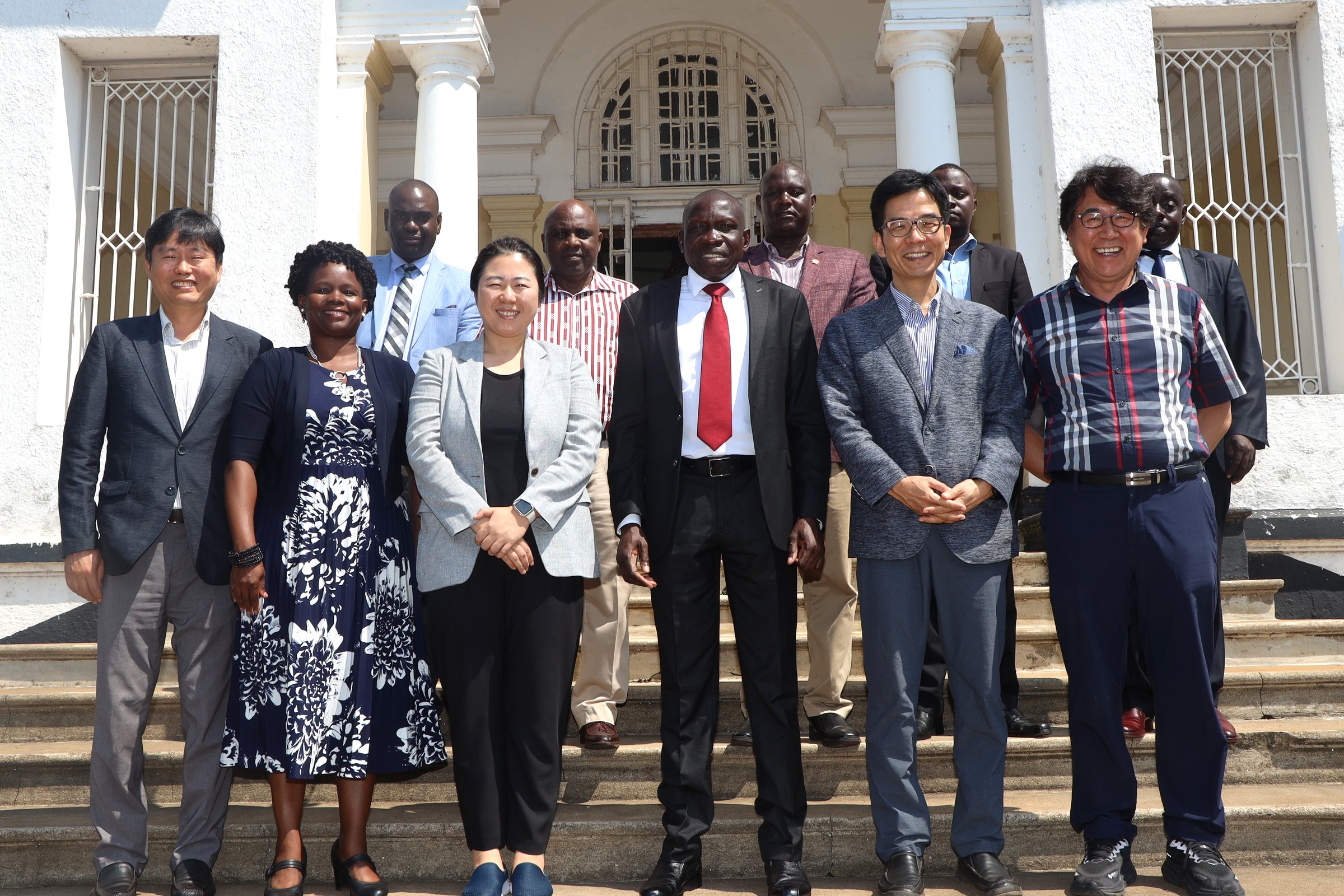The National Agricultural Research Organisation (NARO) has
committed to ensuring the continuity of a special project implemented in collaboration with the
Korea International Cooperation Agency (KOICA) to enhance vegetable production in Uganda.
The VegeSeed project aims to lay the foundation for the mid-to-long-term development of new
vegetable varieties in Uganda by strengthening the certification system and disseminating
certified seeds for five vegetable crops: Nakati, Tomato, Onion, Cabbage, and Chili pepper.
This initiative considerably contributes to the agricultural industrialization agenda by fostering
local production of horticultural seeds, thereby substituting imports from Europe and Asia,
currently estimated at USD 7 million. With the increasing market demand for vegetables and
fruits driven by rapid urbanization and changing dietary needs, the adoption of these improved
technologies is expected to double Uganda's current annual vegetable production, which is
estimated at 5.3 million tons and worth USD 34 million.
Other project components include the establishment of infrastructure for vegetable breeding and
certification, empowerment of human resource capacity, establishment of infrastructure for
certified vegetable seed production, building farmers’ capacity, and improving distribution,
dissemination, and farmers’ awareness of certified seeds.
Last week, the project, unveiled in 2022, reached a new milestone when a host of greenhouses, a
key component for breeding, were handed over to NARO.
In a follow up meeting held at the NARO headquarters on Wednesday, KOICA Country Director
Jihee Ahn described the greenhouses as a fundamental set of infrastructures, serving as a
stepping stone to the next level, which includes procurement and installation of equipment for
the seed value chain.
The newly deployed project manager, Prof. Young-Rog Yeoung, revealed that in the short time
he has spent in Uganda, he had observed the country's excellent weather conditions for vegetable
production, not only for local consumption but also for export to the international market.
“I have visited a number of NARO research institutes and so far I am very impressed by the
breeding programs there. Plus, we should leverage the very good weather to export vegetables to
foreign markets and improve farmers’ incomes,” he noted.
The NARO institutes hosting the project’s infrastructure include the National Crop Resources
Research Institute (NaCRRI) in Namulonge, the Mukono Zonal Agricultural Research and
Development Institute (MuZARDI) in Ntawo, Mukono district, and the National Agricultural
Research Laboratories (NaRL) at Kawanda, Wakiso district, where the facility for seed testing
and certification has been constructed. The Buganda Kingdom, under the auspices of MuZARDI
and Luwero District Local Government, is also hosting part of the project infrastructure.
NARO Deputy Director General in charge of Agricultural Technology Promotion, Dr. Sadik
Kassim, who chaired the meeting commended the Korean government for its longstanding
partnership with Uganda through NARO, which has seen several projects implemented in the
horticulture sector. He cited the citrus value chain development project in Eastern Uganda, which
has supported many farmers in Teso and neighboring areas that grow fruits for commercial
purposes. He noted that Korea was once again pioneering the vegetable production enhancement
drive in Uganda and appreciated the infrastructure that has already been set up.
Dr. Kassim highlighted that Ugandan farmers have been highly dependent on imported seeds for
tomatoes, onions, and cabbages, but the VegeSeed project will bring this to an end. He expressed
optimism that the planned training of NARO scientists in Korea would result in skills transfer to
sustain vegetable seed production in the country.
Dr. Kassim underscored the importance of maintaining the project facilities in operation and
pledged that their operationalization would be incorporated into the NARO annual work plans
and budgets.
Several members of the NARO Top Policy Management team and Directors of the implementing
institutes attended the meeting.




















